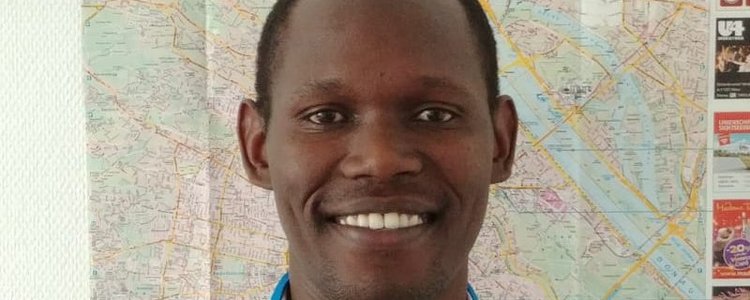The PUB summer school equipped hydrologists and water planners working in ungauged basins, with the necessary skills and knowledge, to bridge the hydrological gap caused by the lack of gauging stations. This gap often leads to fragmentation in available hydrological information. In order to stem this fragmentation, the PUB summer school attempts to answer the following questions: How much water do we have? When do we have the water? For how long do we have the water? How dry will it be? How high will the flood be? What are the dynamics of runoff? The PUB Summer School “Runoff Predictions in Ungauged Basins” took place at the Technical University Vienna from the 1st to the 6th of July 2018.
Paul was able to learn various practical process-based tools and statistical methods that can be applied to predict runoff in basins that have no gauging stations. Similarly, his study area in the Mt. Elgon region of East Africa has a scarcity of gauging stations. It is therefore necessary, that he also adopts and applies these tools in order to understand the hydrology of his study area, and consequently build a comprehensive water use scenario as envisaged in his PhD study.
Paul OMONGE is a PhD candidate at the Institute of Water Management, Hydrology and Hydraulic Engineering, University of Natural Resources and Life Sciences, Vienna (BOKU). He was nominated for his PhD within the APPEAR project CapNex that aims at capacity building on the water-energy-food security Nexus through research and training in Kenya and Uganda. His research focusses on forecasting water availability and use amid competing socio-economic and climatic stress. He previously lectured at the department of Biosystems and Environmental Engineering, Technical University of Kenya. He holds a Master’s degree in Environmental Sciences from Kenyatta University. He has worked as a conservation officer for Nature Kenya as well as an Assistant Researcher in the Maasai-Mara basin Hydrological Project (MaMa-Hydro) funded by KEF, at Kenyatta University. Paul has won several awards; the Joke-Waller Hunter Young Environmental leader award and the Rufford Small Grants (RSG) for Nature. The RSG enabled him to implement an indigenous knowledge based approach to the conservation of the Nyangores catchment of the upper Mara River basin where he did his MSc Studies.
